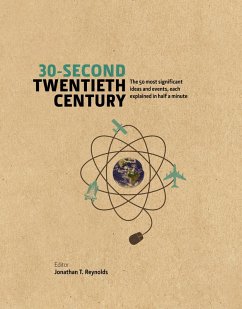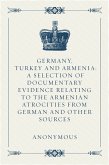You probably know, or think you know, quite a bit about what happened in the 20th century – chances are, if you're reading this, you lived through at least some of it – and you may have referenced the Cuban Missile Crisis, the double helix, or the Wall Street Crash in conversation. But even for people who were there, it was the fastest-moving hundred years in history, so refresh your memory with these pacey profiles on everything from Sputnik to Stonewall. Twentieth Century presents a unique approach to modern history, condensing 100 years of innovation and art, politics and conflict, triumph and disaster, into 50 graphic snapshots that offer an instant appreciation of the way the world revolves and evolves. Consider which events define a period of history and why. From the Red Army to Black Monday, from Woodstock to the World Wide Web, this is the fastest way to travel in time.








